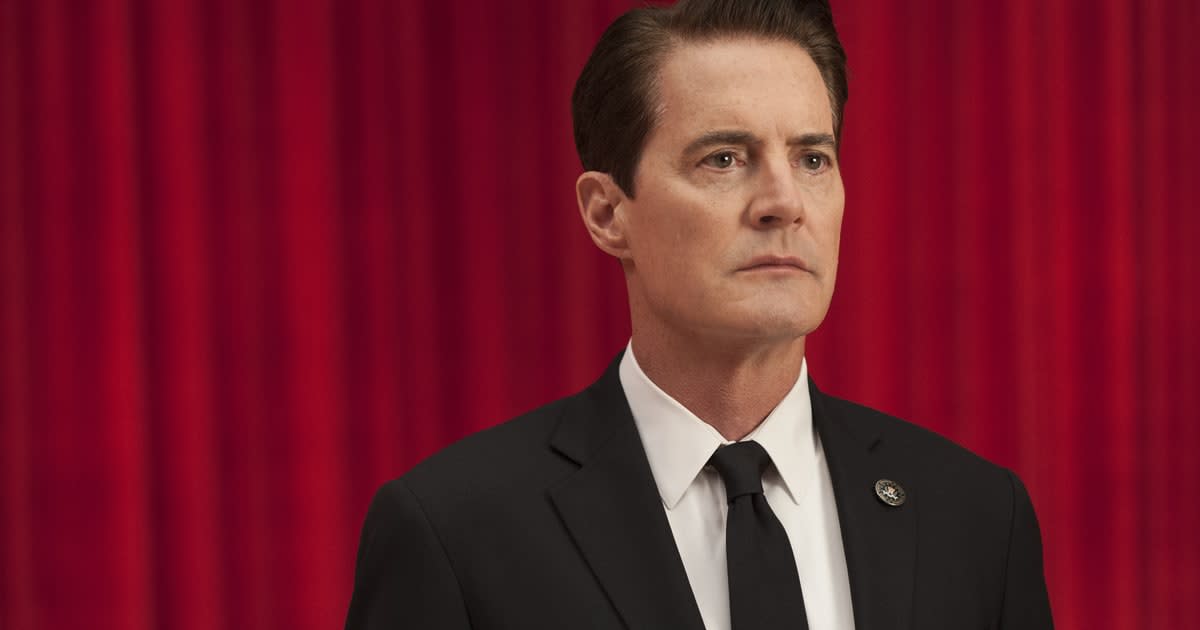'Twin Peaks' series finale: 'What the hell just happened?'

The final two episodes of the 18-episode Twin Peaks: The Return aired back-to-back Sunday night. To judge from the reaction on social media, there are many people out there wishing David Lynch’s series had ended with Episode 17, and feeling that No. 18 was a head-scratcher. I can identify with that reaction somewhat, but that doesn’t mean I still didn’t have more fun and more thrills from this entire season of Peaks than I’ve had from any other TV show this year.
The first hour of the Showtime-packaged finale was immensely satisfying, complete with beautiful imagery and good old-fashioned jokes. (Miguel Ferrer’s Albert to Lynch’s Gordon Cole: “Gone soft in your old age.” Gordon to Albert: “Not where it counts, buddy.”) The final two episodes — written, as were all the others, by Lynch and Mark Frost, and directed by Lynch — did something we had no reason to suspect was important to Lynch: It connected the first season of Twin Peaks with Lynch’s 1992 feature film Twin Peaks: Fire Walk With Me, scissoring out Peaks’s second season (the one Lynch had little to do with, and with which he was reportedly dissatisfied) and coming up with a fresh fate for Sheryl Lee’s Laura Palmer. In the new episodes, the corpse of Laura that washes up on shore disappears, and the Laura that Kyle MacLachlan’s FBI agent Dale Cooper finds is a woman in Odessa, Texas, who denies being Laura — she’s Carrie Page, she insists. When Cooper tells her it’s “very important” to go to the town of Twin Peaks, “to your mother’s home,” she agrees with a drawl and a hard glance back at something Cooper hadn’t noticed at first: the body of a dead man, shotgun-blasted, on her sofa. This is an adult Laura who survived her adolescence living with a predatory father, grown up to become a hardened woman who takes no crap from any man. She also seems to have suppressed so much of her awful childhood that she no longer remembers big chunks of her past. Thus her scream in the final moments of the show, as recovered memories — horrors — pour back into her brain.
It turned out that the most significant recurring phrase of the entire series was uttered in the first episode and the last: “Is it future or is it past?” When Cooper and Laura/Carrie rolled up in front of the Palmer house, walked to the door, and knocked, they were not met with what we expected (Laura’s mother; a tearful reunion, perhaps). Instead, an innocuous woman answered the door, said this was not the Palmer house, Cooper asked a few puzzled questions, and that was pretty much that. Well, except for Cooper asking, “What year is this?” and Laura screaming so loudly, the lights blew out in the not-Palmer house (damn electricity!), and the screen faded to black, only to briefly light up, partially, on a closeup of a shot we’d seen before, of Laura whispering something into Cooper’s ear in the Black Lodge.
There’s a lot more to this — there’s always a lot more to what Lynch does, with clues dropped and picked up again over the span of a quarter-century. When Cooper asks the woman at the door questions about who she bought the house from, they are names — Tremond, Chalfort — of characters who loomed very briefly in Fire Walk. The long blacked-out screen near the end inevitably reminded viewers of the finale of The Sopranos, and Cooper’s final yell, “What year is this?” throws the timeframe of the final moments into question.
The notion of whether Lynch has reset the entire, overarching Twin Peaks storyline (“Who killed Laura Palmer?”) with The Return’s final hour is a question to be pondered by fans and TV writers obsessed with forcing every detail to make narrative sense. The recap culture that grew up around television in the years between the last Peaks series and this new one derives most of its pleasure from reconciling plot points and solving the puzzle. And solving things is something Lynch isn’t interested in.
The best moment in the final two hours was of a piece with what made this bold 2017 experiment so hugely engrossing and worthwhile. It’s the scene in which Cooper and Laura Dern’s Diane reunite and kiss, when they go to a motel and have sex as the Platters’ 1956 hit “My Prayer” plays on the soundtrack. (Yes, the same song heard in the show’s great eighth episode, and which I wrote about here.) Singer Tony Williams utters the song’s title phrase at the same moment Diane has an orgasm. (Lynch is careful to make sure you focus on her pleasure — Diane covers Cooper’s face with her hands; it’s her face we’re meant to appreciate.)
This is of a piece with everything else of value in Twin Peaks: The Return: The primacy of feeling over thought; the crucial notion of being transported to another dimension of sensation. (What else is Lynch’s obsession with electricity, the jolting force that animates and reorders so many things?) In the immediate moments after watching the finale, I was puzzled and somewhat irritated by the way Lynch seemed to be caving into the tiresome insistence of his audience to tie things up, to explain decades-old mysteries. But then I realized, while Lynch was suggesting that strategy as a possibility, he was also rejecting it. The mysteries have been reframed, yes, but they’re also intact.
Read more from Yahoo TV:

